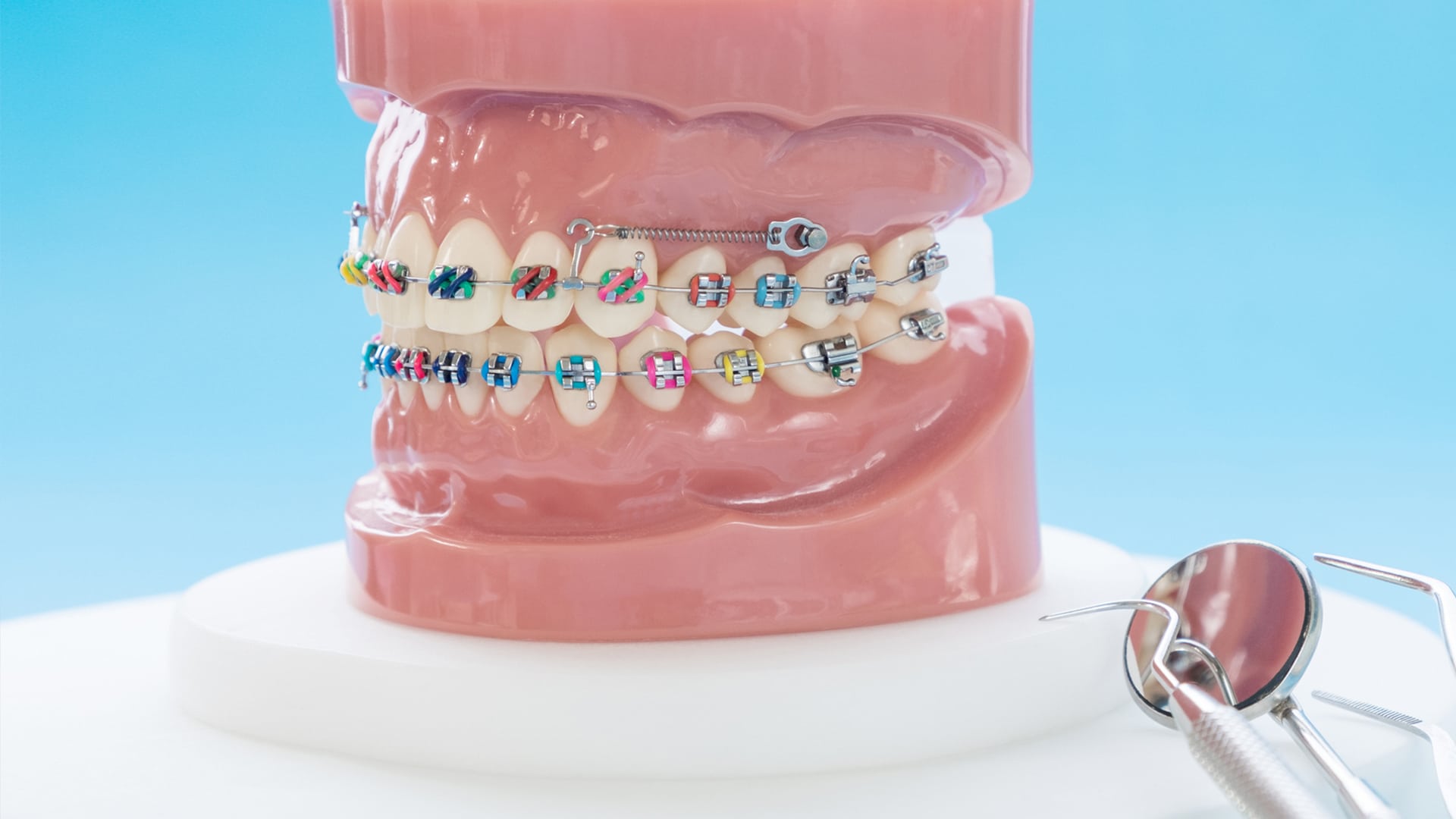Oral Surgery for Orthodontics in Manchester, NH

Manchester Oral Surgery provides teeth extractions and exposures for orthodontics in Manchester, NH. Call 603-622-9441 to learn more or to schedule an appointment.
What Is Oral Surgery for Orthodontics?
Sometimes, orthodontic treatment cannot begin until a patient has had oral surgery to remove or expose unerupted teeth. Dr. Abel works with many local orthodontists to prepare patients’ teeth for braces. Below are some of the procedures Dr. Abel offers:
Dental Extractions

When there isn’t enough room for an orthodontist to move the teeth, extractions may be needed to alleviate crowding. Most often, it’s the bicuspid teeth that are removed. Other times, primary teeth may not have fallen out on schedule, or a permanent tooth may have erupted alongside a primary tooth, rather than pushing it out. Dr. Abel can extract the primary tooth in these cases.
Impacted Tooth Exposure
An unerupted tooth sometimes needs to be exposed to move forward with orthodontic treatment. This involves removing some of the bone and soft tissue overlying the unerupted tooth to be accessed. Once the tooth is revealed and a bracket is attached, your orthodontist can begin to pull your tooth into its proper position.
Tooth Anchorage Device

Temporary anchorage devices are tiny "screws" placed in the upper or lower jaws to assist the orthodontist with pulling or pushing teeth into alignment. The "screws" provide a fixed anchor for space closure, molar uprighting, correction of open bites, and other tooth movements. Treatment usually lasts a few months, and once the desired direction has been achieved, the "screw" is removed.
Frenectomy
A frenectomy is a surgical procedure performed to release the connection of the “frenum,” a connective muscle between two tissues. Dr. Abel can perform a labial frenectomy on the tissue that connects the lip to the gums. This procedure can help prevent space between the front teeth from recurring once orthodontic treatment is complete. Dr. Abel can also perform a lingual frenectomy or frenuloplasty to relieve ankyloglossia (“tongue-tie”).
Benefits of Oral Surgery for Orthodontics
The primary benefit of oral surgery for orthodontics is that orthodontic treatment may not be an option without it. An orthodontist must have room to move teeth and have access to all of the permanent teeth to improve your bite and alignment.
Why Choose Manchester Oral Surgery?
Manchester Oral Surgery specializes in oral surgery for orthodontics. Here’s why patients choose our practice:
- Sedation anesthesia ensures that you’ll feel relaxed and comfortable
- Leukocyte-Platelet Rich Fibrin (L-PRF) helps minimize the risk of developing dry socket after teeth extractions for an easier recovery
- Dr. Abel is a Board-Certified Diplomate of the American Board of Oral and Maxillofacial Surgery and a Fellow of the American Association of Oral and Maxillofacial Surgeons
- Manchester Oral Surgery is consistently named in New Hampshire Magazine’s Top Dentists edition for Oral & Maxillofacial Surgeons
- Our highly-trained, kind, and compassionate care team all work together to guide your treatment
- Individualized, professional, patient-centered care
FAQS
Is it bad to extract teeth for braces?
Extracting teeth for braces is never ideal, but if the jaw isn’t large enough for all of the permanent teeth, extractions are usually needed to create the room required to move them into their proper positions.
Is removing teeth for braces painful?
No, we use local anesthesia to numb your mouth and ensure that you feel no pain. It’s common to sense movement and pressure but not discomfort. Sedation anesthesia is often an option as well.
How much does it cost to extract a tooth for braces?
The cost of extractions depends on the teeth being removed and how many extractions are needed. We will provide you with an estimate either during or shortly following your consultation.
Does exposing a tooth hurt?
We use local anesthesia to ensure that you feel no pain during your tooth exposure procedure, but you will experience some discomfort afterward. We’ll provide you with instructions to help you manage any pain.
How long does it take a tooth exposure to heal?
It typically takes 2 to 3 weeks for the gums to heal around a newly exposed tooth. Your orthodontist, however, may want to begin the process of guided tooth eruption even sooner.
Call 603-622-9441 to learn more or to schedule an appointment
